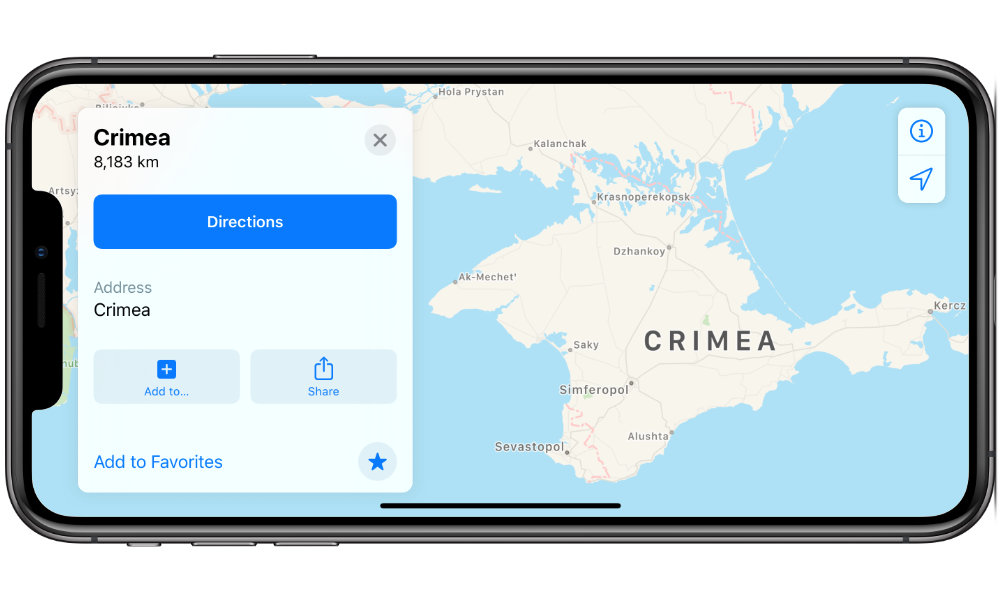Apple to Take a ‘Deeper Look’ at Disputed Borders after Controversial Crimea Incident
 Credit: Jesse Hollington
Credit: Jesse Hollington
Toggle Dark Mode
Last week, Apple made another controversial move when it succumbed to pressure from the Russian government to relabel its Maps and Weather apps to identify Crimea as a part of Russian territory on Russian iPhones.
It’s the latest decision by Apple that makes it appear to be kowtowing to the demands of foreign powers who want to shape the world to their liking. In this case, the issue was that Russia considers Crimea to be a part of its territory after in annexed it from Ukraine in 2014. Unfortunately, most people in Crimea tend to disagree, as does the U.S., the European Union, and most other democratic nations.
To be clear, Apple only made the change on Russian iPhones, but in some ways that’s even more egregious, since it creates what some are legitimately calling a “regionalization of facts” — an Orwellian sort of idea that truth is not only subjective to where you’re viewing it from, but defined by whoever happens to be in power.
Taking ‘A Deeper Look’
In response to various criticisms over its decision, however, Apple has now told the BBC that it is reviewing how it handles disputed borders in its Maps app.
It’s not really clear what it means by this, however, since an Apple spokesperson said that the review may actually result in more changes, not less, meaning that we could soon other geographical revisionism in play. One thing that is certain is that this doesn’t mean that Apple is going to reverse its decision regarding Crimea, since the company insists that it was only complying with Russian law in the first place.
We review international law as well as relevant US and other domestic laws before making a determination in labelling on our Maps and make changes if required by law.
Apple
In a statement to the BBC, Apple stressed that it had not made any changes to Apple Maps regarding Crimea outside of Russia, but that the changes in how the area was labelled inside of Russia had to be made in order to comply with Russian law, which actually makes it a criminal offence to label Crimea as part of Ukraine.
To be fair to Apple, the company had actually been resisting the change with the Russian government for several months, hoping to simply keep Crimea labelled as “an undefined territory” belonging to no one in particular. Google Maps seems to have gotten away with this approach so far, listing it as “disputed territory,” however Google arguably has less at stake in Russia than Apple does, since the sale of physical products isn’t even close to being the search giant’s primary business.
Naturally, Apple has to comply with local laws in the countries in which it wishes to do business, but it’s clear that this is becoming a major downside to doing business in those places that are ruled by oppressive regimes. While a few years ago the most controversial issues that Apple had to deal with from countries like China was seeing apps banned from the Chines App Store and being forced to keep iCloud data for Chinese users on state-run servers, the popularity of Apple’s iPhone combined with more tumultuous politics around the world has been putting Apple in much more difficult situations, with laws that often force the company to go against its stated principles, such as in the recent controversy over HKmap Live app in Hong Kong, or partnerships that risk compromising the privacy of its users.






